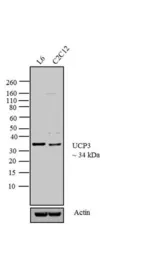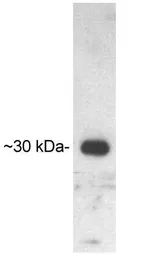- Back
- Primary Antibodies
- Secondary Antibodies
- Antibody Panels
- ELISA Antibody Pairs & Kits
- Isotype Controls
- Proteins & Peptides
- Slides
- Lysates
- Serums & Plasmas
- Reagents
- Research Kits
- Research Tools
- Back
- Cancer
- Tumor Markers
- Neuroscience
- Cell Biology
- Metabolism
- Epigenetics
- Cardiovascular
- Immunology
- Development
- Cell Markers
- Signaling Pathways
- Infectious Diseases
- Organelle Markers
- Zebrafish
- VetSignal
- HistoMAX – IHC-validated Antibodies
- Loading Control Antibodies
- Epitope Tags & Reporters
- Back
- Rewards Program
- Custom Antibodies
- Conjugation Service
- 100% Guarantee
- Inquiries
- FAQs & Tips
- Poster Library
- Flyer Library
- Protocols
- Online Biology Research Tools
- Fluorescence Spectra Viewer
- Back
- About Us
- Message from the Chairwoman
- GeneTex's Founding Scientists
- Contact Us
- Scholarship
- Career
United States (US)
- Back
- Infectious Diseases
- Coxsackievirus
- Dengue Virus
- Ebola Virus
- Enterovirus D68
- Enterovirus 71
- Flavivirus group
- Hepatitis A Virus
- Hepatitis B Virus
- Hepatitis C Virus
- Human immunodeficiency virus
- Human Papillomavirus
- Influenza virus
- Japanese Encephalitis Virus
- Norovirus
- SARS-CoV-2 (COVID-19)
- SARS-CoV
- MERS-CoV
- West Nile Virus
- Yellow Fever Virus
- Zika Virus
- Back
- Epitope Tags & Reporters
- 6X His Tag
- DDDDK Tag
- Myc Tag
- GST Tag
- Strep Tag
- S Tag
- V5 Tag
- HA Tag
- HSV Tag
- Maltose Binding Protein (MBP) Tag
United States (US)



